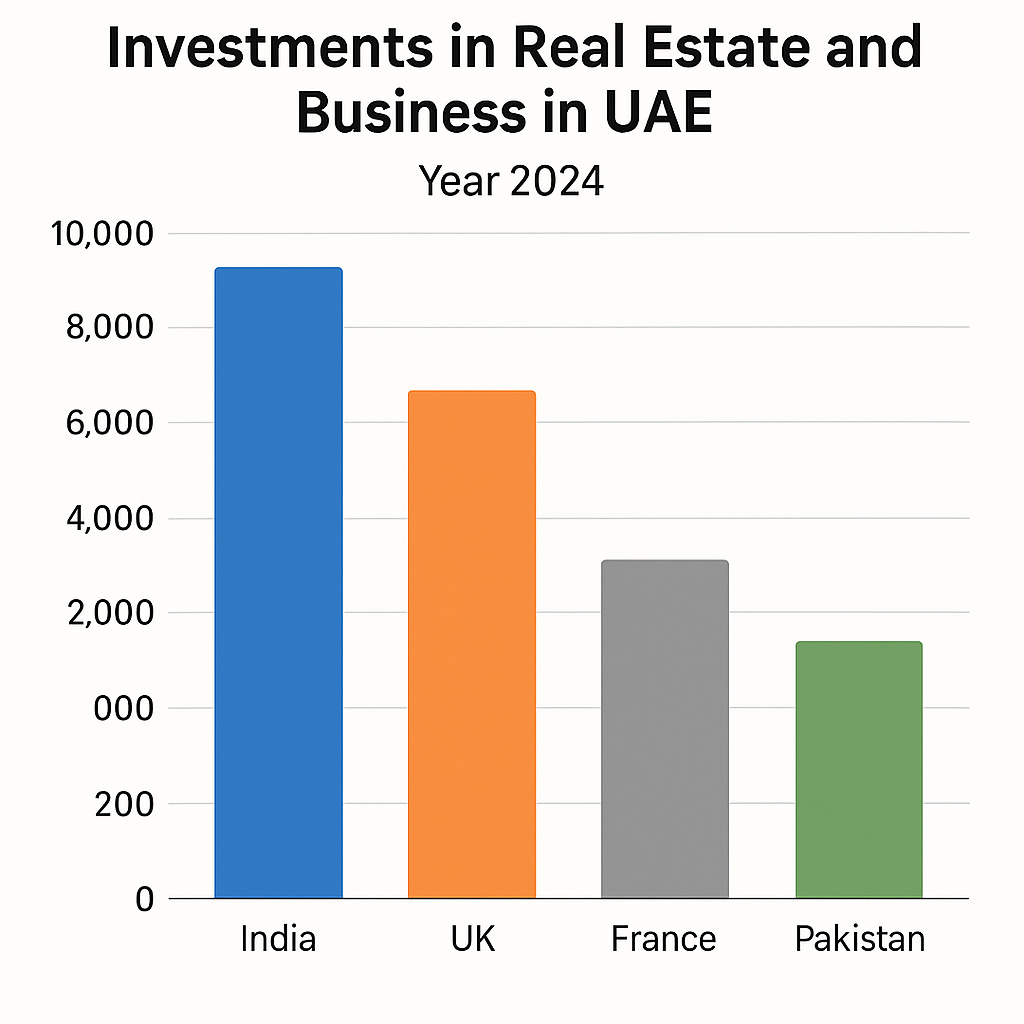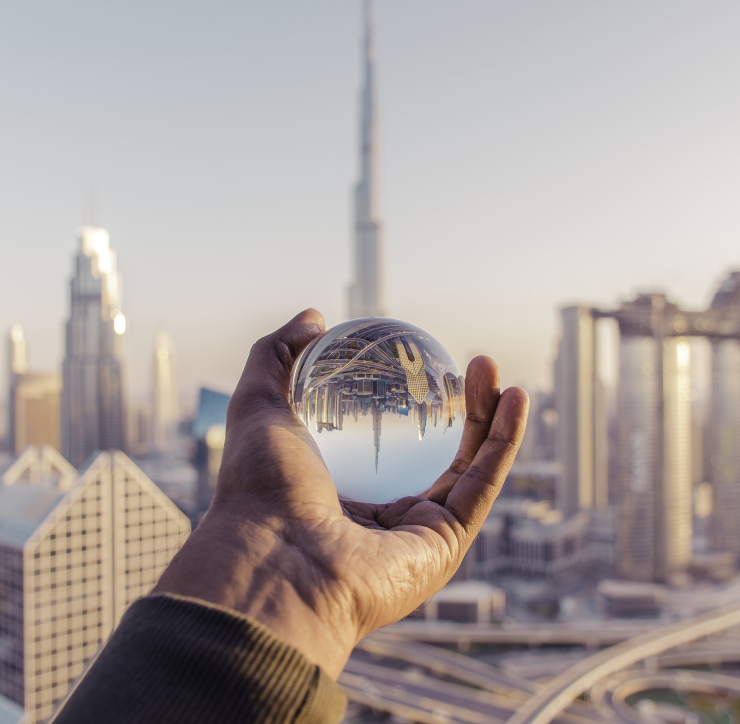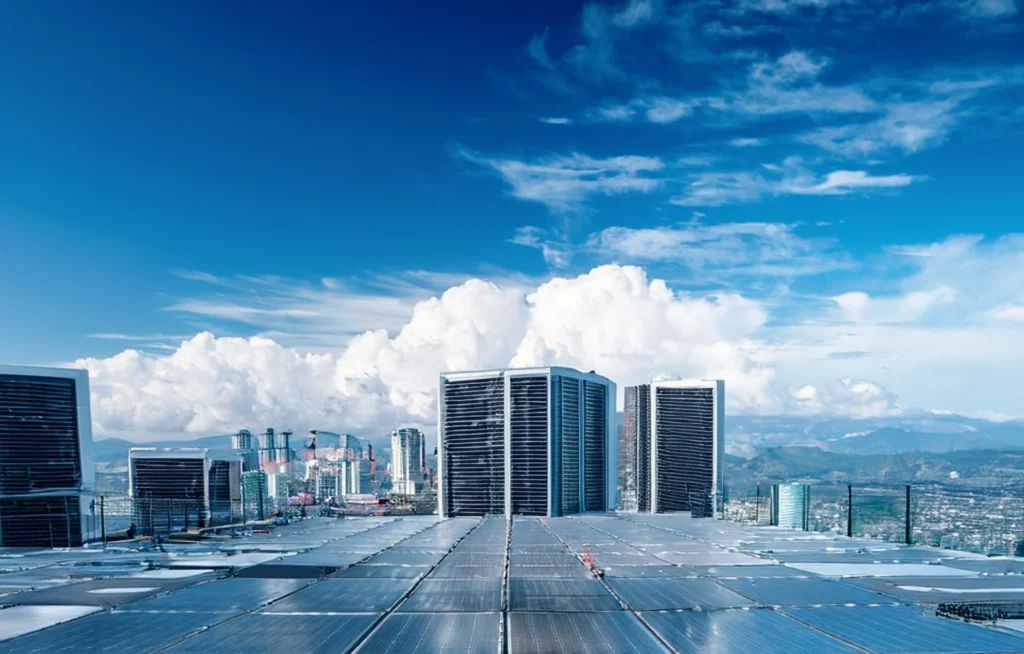From London to the Gulf
What’s Driving UK Investment
in the Middle East?
By Marina Ezzat Alfred
The Gulf region, long regarded as a vital part of the Middle East, has emerged as a hotspot for global investment, and the United Kingdom is firmly at the center of this growing interest. Decades of shared history, along with a determined post-Brexit strategy to redefine its place in the world economy, have driven the UK to deepen its ties with Gulf countries across economic, strategic, and cultural spheres. With Gulf states undergoing sweeping transformations and branching out beyond oil-based economies, Britain sees an opportunity to be more than just a trade partner – to be a long-term collaborator in innovation, sustainability, and security.
Britain’s legacy in the Gulf dates back to its colonial past, when several Gulf states were British protectorates. This complex history laid the groundwork for enduring relationships, built on mutual interests that have evolved over time. As oil transformed the region’s fortunes in the 20th century, British companies played key roles in exploration, production, and infrastructure. Today, while the historical context still informs political and diplomatic ties, it is the modern drive for economic diversification and strategic cooperation that truly fuels the UK-Gulf dynamic.
Post-Brexit, Britain has pursued new trade partners to replace lost EU markets, and the Gulf Cooperation Council (GCC)—comprising Saudi Arabia, the UAE, Qatar, Oman, Bahrain, and Kuwait—has become a top priority. Together, these countries offer a market valued at over £50 billion a year, with tremendous potential for growth in areas like green energy, technology, healthcare, education, and finance. Ongoing negotiations for a free trade agreement with the GCC promise to remove trade barriers and enhance mutual access, creating a robust platform for future collaboration.
While oil once defined UK-Gulf relations, the shift toward renewable energy is opening new chapters. With British expertise in green technology and environmental engineering, the UK is well positioned to support major Gulf initiatives like Saudi Arabia’s Vision 2030 and the UAE’s Masdar City. These ambitious programs aim to reduce dependence on fossil fuels and build eco-friendly urban centers, and they offer fertile ground for British firms to export knowledge and services while contributing to global sustainability goals.


The Gulf’s rapid modernization has sparked a construction and infrastructure boom that continues to attract British talent. Architectural firms, engineering consultancies, and urban planning experts from the UK are involved in iconic developments, from the towering skyline of Dubai to the futuristic NEOM city project in Saudi Arabia. These ventures not only demonstrate the Gulf’s ambitions but also showcase British design and technical excellence on a global stage.
Financial connections between the UK and the Gulf are equally robust. London remains a magnet for Gulf wealth, with sovereign wealth funds investing billions in UK real estate, infrastructure, and businesses. Landmark acquisitions such as Harrods and stakes in Heathrow Airport illustrate the depth of these ties. At the same time, British financial institutions are expanding their operations in the Gulf, particularly in fintech, wealth management, and Sharia-compliant finance, areas where the UK has developed strong expertise.
Strategically, the Gulf region’s geographic location makes it crucial to Britain’s global interests. As a crossroads between Europe, Asia, and Africa, the Gulf offers logistical and military advantages. The UK maintains military bases in Bahrain and Oman and enjoys defense cooperation with countries like Saudi Arabia. While lucrative, this aspect of the relationship has sparked debate back home, especially around arms exports and human rights concerns in the region. Navigating this aspect of the partnership requires a balance between economic interest and ethical accountability.
Culturally, the UK and the Gulf continue to build bridges. British universities have established campuses in the region, offering world-class education to local students. Cultural institutions such as the British Council play an active role in fostering mutual understanding, and high-profile exhibitions and partnerships with Gulf museums reflect a growing appetite for cultural exchange.
Meanwhile, Gulf citizens travel frequently to the UK for education, shopping, healthcare, and leisure, reinforcing people-to-people ties. British travelers, in turn, are discovering the Gulf’s rich history, luxury tourism, and modern marvels with increasing enthusiasm.
Despite the clear potential, the partnership is not without challenges. Human rights issues, the pace and sustainability of development, and the ethical implications of defense sales remain contentious. There are also risks associated with the Gulf’s economic model, which still leans heavily on oil revenues. Diversifying into tech, tourism, and sustainable industries is essential for long-term stability – and it’s in the UK’s interest to support and invest in these transitions.
Looking ahead, the UK-Gulf partnership stands as a promising example of how nations with different histories and cultures can work together to meet global challenges. This relationship goes beyond trade, it encompasses shared goals in sustainability, education, innovation, and geopolitical stability. If managed thoughtfully and ethically, it could redefine international cooperation in the 21st century.
The UK’s deepening involvement in the Gulf is not just a matter of economic strategy; it’s about forging a forward-looking alliance that reflects mutual respect and shared ambition. As the region continues its bold transformation, and as the UK navigates its post-Brexit reality, their evolving partnership may well set the tone for future global relationships. For Britain, the Gulf is more than a market, it’s a vital connection in a changing world.



